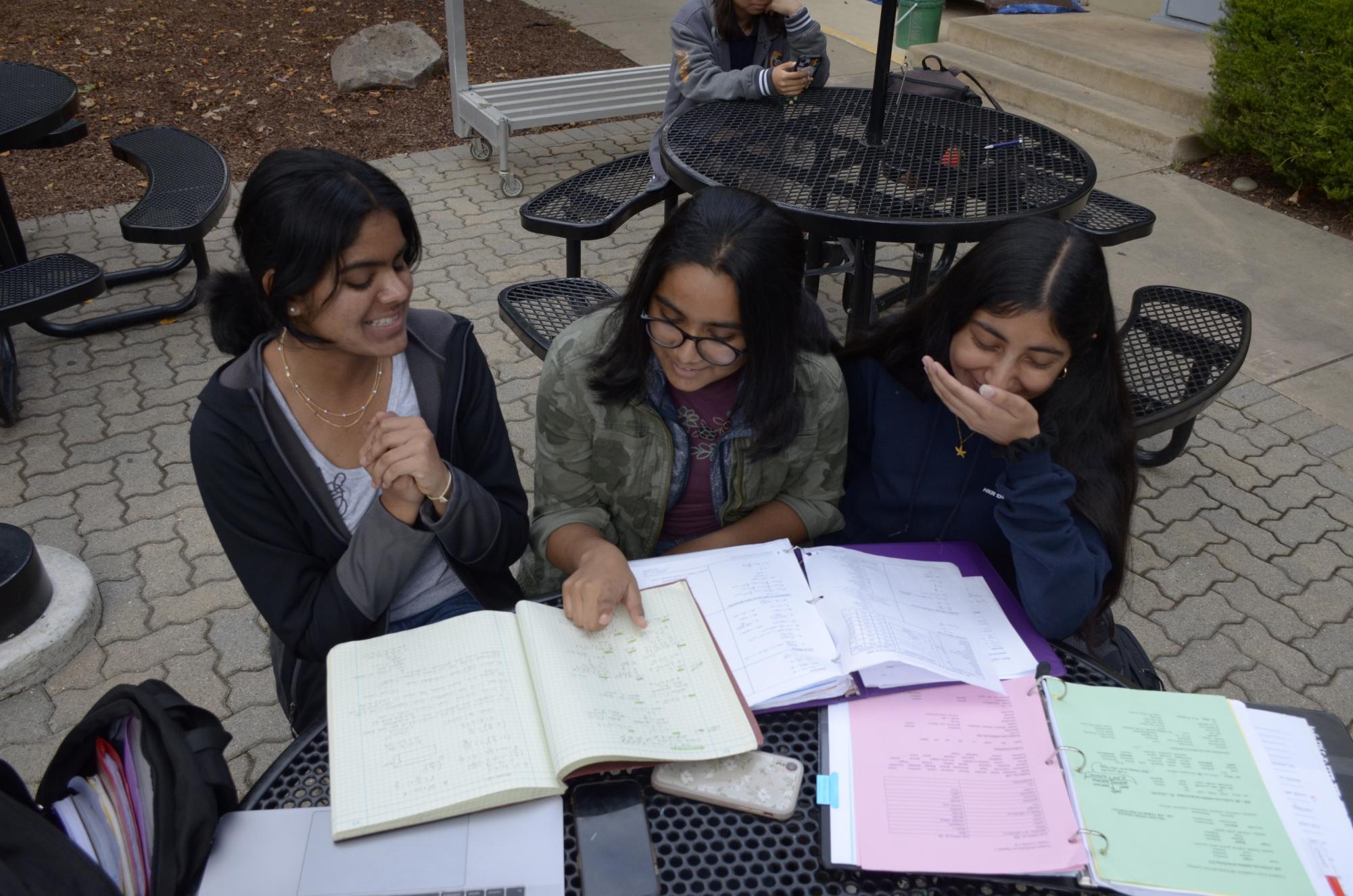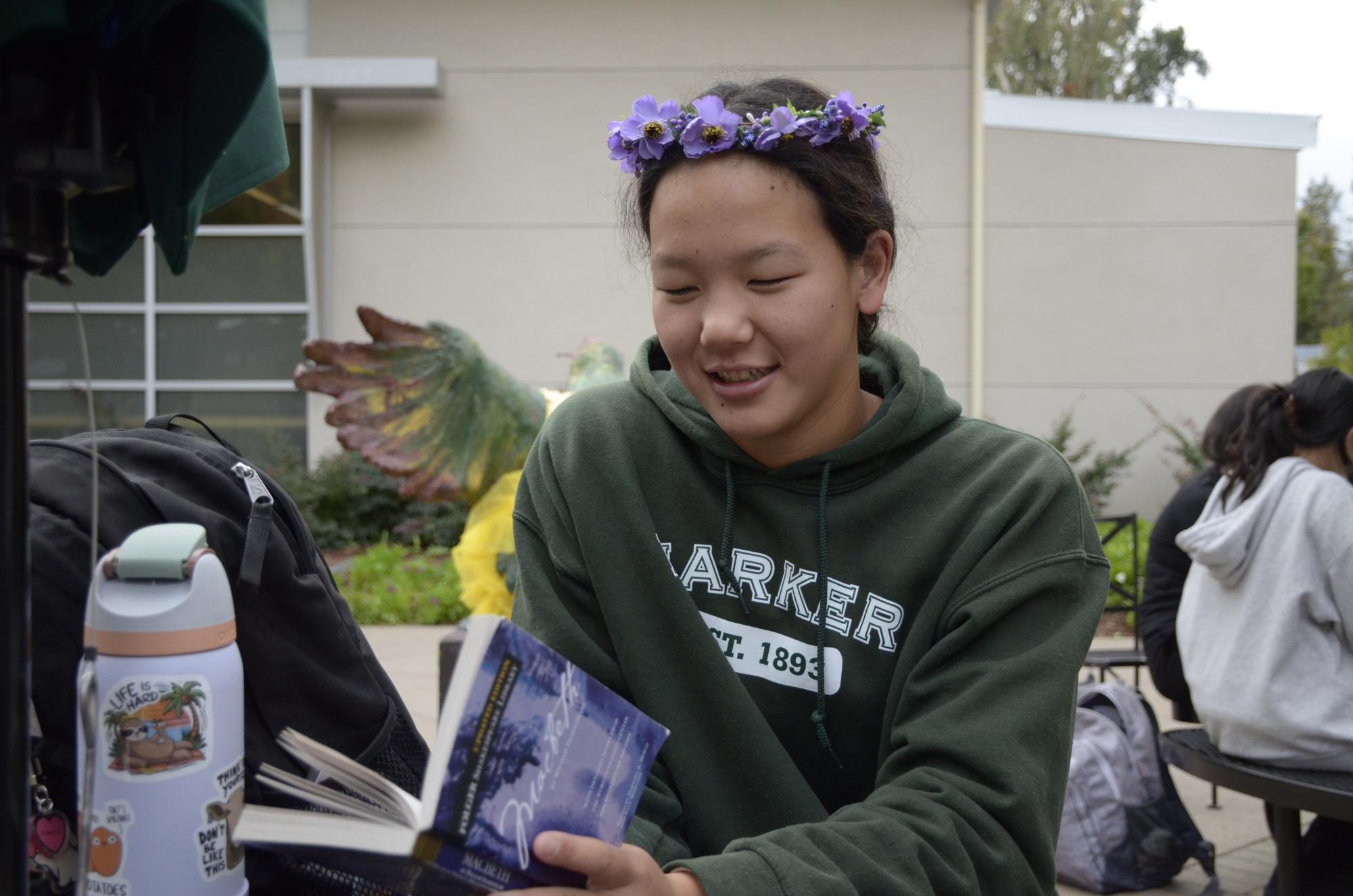
Perspectives: Studying with others vs. studying alone

As I stare at the free response portion of my history test, I desperately rack my brain for the answer to the question. My heart beats at an unprecedented speed and my mind blanks. Suddenly, I remember the mnemonic my friend shared with me for the five pillars of Islam. As my pencil flies across the paper, I thank the universe that I studied with her the night before.
Whenever I review for an assessment with others, I’m introduced to so many new viewpoints, study tactics and useful tricks for answering test questions, which allows me to better grasp the material. When studying alone, however, I depend solely on my own thoughts. The lack of diverse perspectives prevents me from developing the level of understanding that I would gain from a group discussion.
My friends and I study together by quizzing each other, giving me the opportunity to verbally explain the knowledge I need for an assessment. Though I can also quiz myself on topics alone, I find that talking with another student about the class material is more helpful for my brain to process ideas. An added bonus is that I can quickly fill in gaps in knowledge with immediate, relevant answers from my friends rather than having to search up my questions when I’m alone.
Studying in a group also promotes active learning and teaching through recalling knowledge. On the other hand, when I’m alone, there’s no one else I can talk to about the class material, so I feel unmotivated to review in an engaged manner. Most of the time, my studying consists merely of reading information, staring at my notes instead of putting in effort to actually process the contents.
Seeing people around me working pushes me to stay on task and continue studying, decreasing the risk of distraction or procrastination. When I’m reviewing on my own, I easily become unproductive, doomscrolling on Instagram for hours on end because there’s no one else around me to keep me focused.
However, the benefits of studying with others do have a limit. Groups must be small enough so everyone’s questions can be acknowledged, but large enough for the spread of ideas to truly be helpful. Sometimes when I study with too many people, my words are drowned out by others’ statements. Choosing who to review with in the first place is also an important decision. My optimal balance consists of three or four classmates I can comfortably make mistakes around, but who don’t distract me from working.
Ultimately, I believe it can be useful to absorb the material alone, then review it and deepen your understanding through group studying afterwards. But if I had to pick, I would choose to review with others for the multitude of ideas and the depth of information I gain, which often leads to much better results.

“Wait, what chapter are we even on?”
Someone laughs. Someone else mutters something about giving up and studying tomorrow. I glance at my notes, then back at the group — five of us crowded at a table, half with laptops open, half scrolling on phones. Voices overlap — one person chuckles at a funny reel, while another vents about a different subject entirely. I sit there, highlighter in hand, realizing I haven’t learned a single thing in the past hour.
What was supposed to be a group study session felt more like group distraction.
Discussions with others sound productive in theory — everyone brings their knowledge to the table, you fill in each other’s gaps, and mutual motivation keeps everyone on track. However, in practice, group study sessions often spiral into distraction. There’s talking over each other, veering off-topic, unequal preparation and the pressure to sound smart in front of others even if you’re not sure about what’s going on.
For me, studying is about ensuring that I remember the material and can recall it later. Group discussions are counterproductive — I waste precious time talking that I could have used to review. In fact, a study by the National Institutes of Health revealed that studying in groups leads to further distraction, which creates a lack of focus and clarity for the subject at hand.
That’s why I prefer to study alone. When I’m on my own, my surroundings are quieter. I can focus without the ping-pong of voices pulling my attention in different directions. I can spend as long as I need on one chapter — there’s no pressure to pretend to understand the information for the sake of moving on and keeping pace with everyone else. I can be temporarily confused in peace and work through roadblocks without interruption.
Instead of worrying about the last-minute scheduling issues with a group, I can simply pop in and out of the library whenever I have time, like during 15-minute breaks or lunch. For example, in the mornings when I arrive just a bit earlier, I can head straight to the library to review instead of waiting on other people.
Studying with others isn’t all bad, but I feel that it usually creates more uncertainty and confusion compared to a solo study session. Sometimes, a well-timed conversation can spark clarity, but for deep work, solitude (for me at least) is more efficient, and honest. By studying alone, I can learn at my own pace and in my own, unique way.

